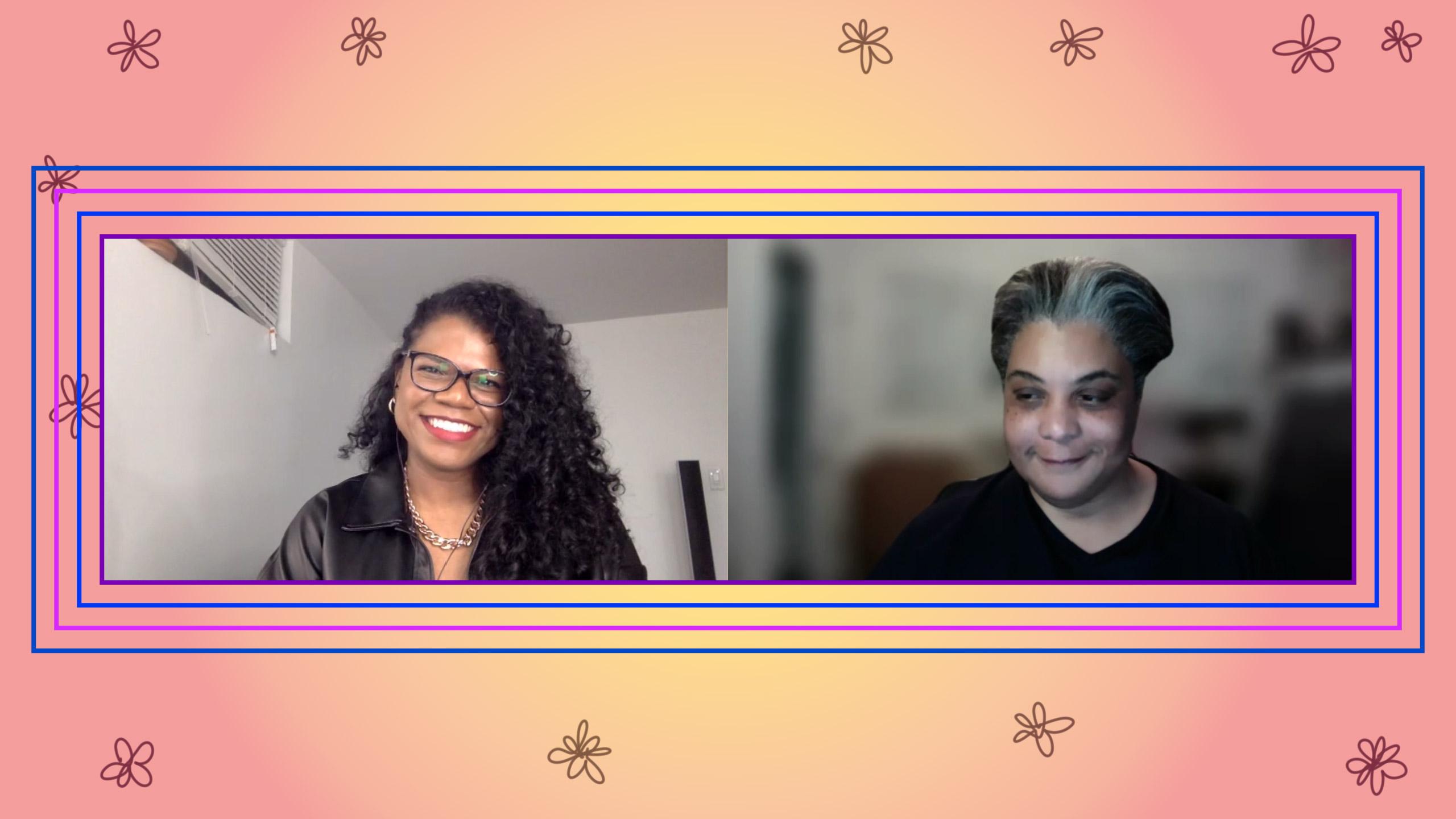By Elizabeth Sargeant
Content warning: This story contains mentions of sexual violence.
Ryerson’s Consent Action Week brought together nonfiction authors Roxane Gay and Eternity Martis on Jan. 26 for a conversation about using writing as a tool to heal from sexual trauma.
The event, dubbed Stories Spark Change, was one of a number of virtual events created for universities across Ontario for the week. Hosted by Farrah Khan, manager of Ryerson’s Consent Comes First office, the event made space for the authors to openly discuss how writing their memoirs allowed them to confront their experiences and heal.
Martis’ memoir They Said This Would Be Fun was recognized as one of Indigo’s Best Books of 2020 and focuses on the intersection of race, womanhood and campus culture. Though the book unpacks her experiences as a Western University undergrad, Martis currently serves as a writing instructor at Ryerson’s School of Journalism.
Gay’s work also observes the experiences of someone who has faced sexual violence. Her unfiltered works’ Bad Feminist (2014) and Hunger (2017) both made it onto The New York Times’ best-selling list.
In fact, it was Hunger, a memoir that addresses body image after assault, that helped Martis address her realities in her own memoir.
“At that time and I was really really struggling with how to write about my experience with sexual violence,” said Martis. “That was one of the reasons I was drawn to [Hunger] because at the time, I didn’t know where to look. I kind of wrote around it.”
Gay explained that while writing, she felt resentful that she had to share what happened to her in the first place. However, once she sat down to write about her experience, her truth just flowed.
“I had to let go, I’m not 12 anymore, I don’t have to keep this a secret. I had to work with those feelings when I sat down to write.”
‘Writing through, not around’
Using writing as a form of catharsis—“writing through it, not around it,” according to Martis—can be an important tool not only for the author, but for readers too.
According to Statistics Canada, sexual assault remains the most underreported crime in the country. The Canadian Women’s Foundation found that of all college women who had experienced sexual assault or attempted assault, only 5 per cent reported the incident to law enforcement.
“The shame is not ours to carry, it’s the people who have harmed us.”
According to figures released by Statistics Canada in 2020, nearly three-quarters of university students in Canada “witnessed or experienced unwanted sexualized behaviours” either in a post-secondary setting or in an off-campus situation that involved students and others associated with their school.
In 2019, an Ontario-wide study revealed that about 23 per cent of Ryerson respondents disclosed they had a non-consensual sexual experience during their time at the university.
‘It’s the same conversation, happening over and over’
“This happens to a great number of people across the gender spectrum. The more we talk about it, the easier it is to recognize it’s not our fault,” said Gay. “The shame is not ours to carry, it’s the people who have harmed us.”
Martis documents the culture of sexual violence on Western’s campus in her memoir. She graduated from Western in 2014.
“People were telling me recently that the school I went to, just in September, had 30 students sexually assaulted on residence. It’s the same conversation happening over and over again.”
Martis is right—in September 2021, more than 30 students in Western’s Medway-Sydenham Hall residence building faced sexual violence during the school’s orientation week. No charges have been laid.
And while there has been a disturbing number of sexual assault cases on campuses, Martis said she has noticed an increase of students interested in wanting to use writing as a form to heal through it—just like she did.
Sharing for others
Gay, who instructs an undergraduate workshop on writing about trauma at Yale University, agreed that creating these stories can be crucial for those who can’t.
“Sharing our stories allows people who haven’t come to terms with their own [trauma], to understand that they aren’t alone, to understand how pervasive this is, that there is a spectrum of sexual violence and that all of those experiences are equal in terms of the fact that they’re unacceptable.”
When it comes to confronting rape culture, Gay said speaking out is the first step.
“The main power is that people can use their voice. Nobody is voiceless, everybody has a voice. It’s just a question of whether or not it’s heard.”
Community members who are affected by this story and/or in need of support can contact the following resources:
- Ryerson’s Office of Sexual Violence Support and Education
- Sexual Assault Centres in Ontario: Confidential and free counselling to survivors of recent and historical sexual assault throughout Ontario. Contact a centre to ask about individual or group counselling. Also provide 24-hour, confidential crisis line to reach a counsellor by phone.
- Good2Talk: 24/7 confidential helpline for post-secondary students in Ontario providing referrals about services and supports for mental health, addictions and well-being. 1-866-925-5454
- LGBT Youth Line: Provides confidential phone and text support for 2LGBTQA youth, operating Sunday – Friday 4pm – 9:30PM. Phone: 1-800-268-9688 Text: 647-692-0777
- Trans Lifeline: 24/7 Confidential hotline staffed by transgender people for transgender people. 1-877-330-6366
- Assaulted Women’s Helpline: 24-hour telephone support and counselling available in several languages. 416-863-0511
- Toronto Rape Crisis Centre/Multicultural Women Against Rape: Crisis intervention, counselling and referral for survivors of rape/sexual assault. Open 24 hours. 416-597-8808
- Women’s Support Network of York Region: Provides free, confidential services for women who have experienced sexual violence. 905-895-7313
- Support Services for Male Survivors of Sexual Abuse: Provides help for male survivors of sexual abuse, both recent and historical. Survivors also have access to a 24-hour, multilingual, toll-free phone line for immediate crisis and referral services. 1-866-887-0015










Leave a Reply